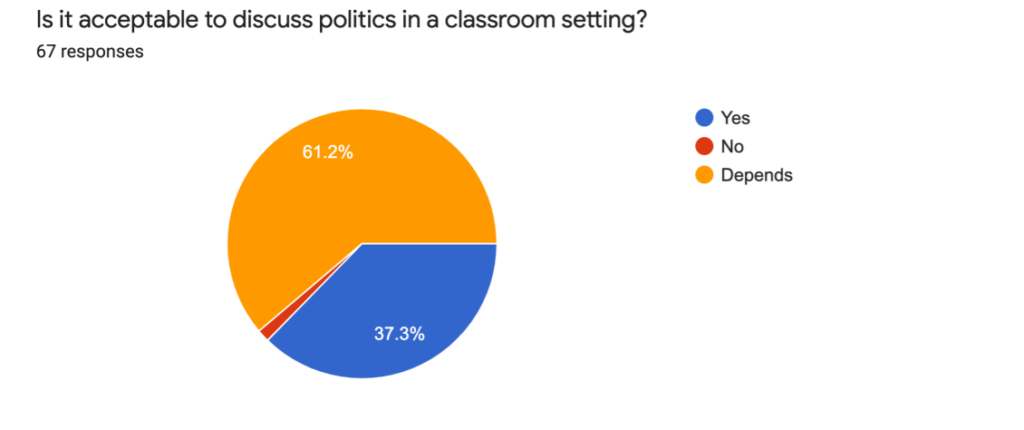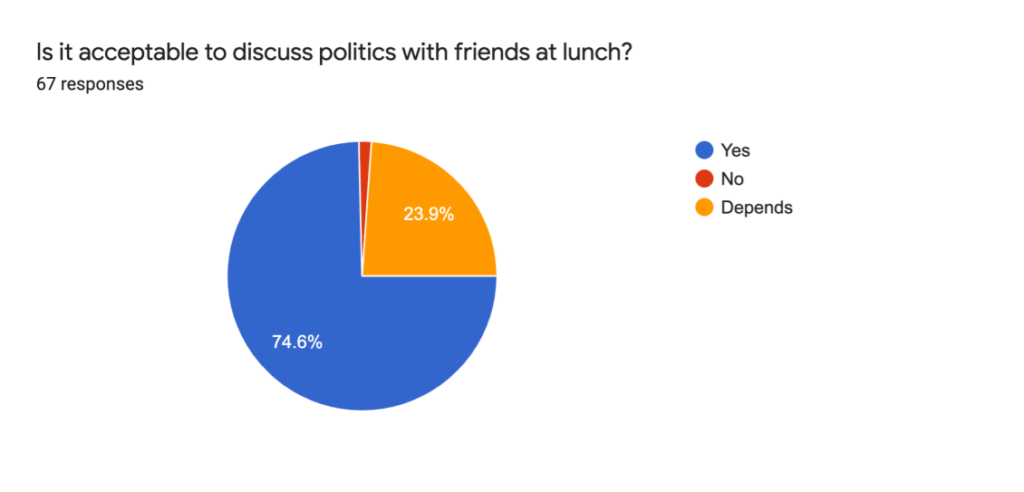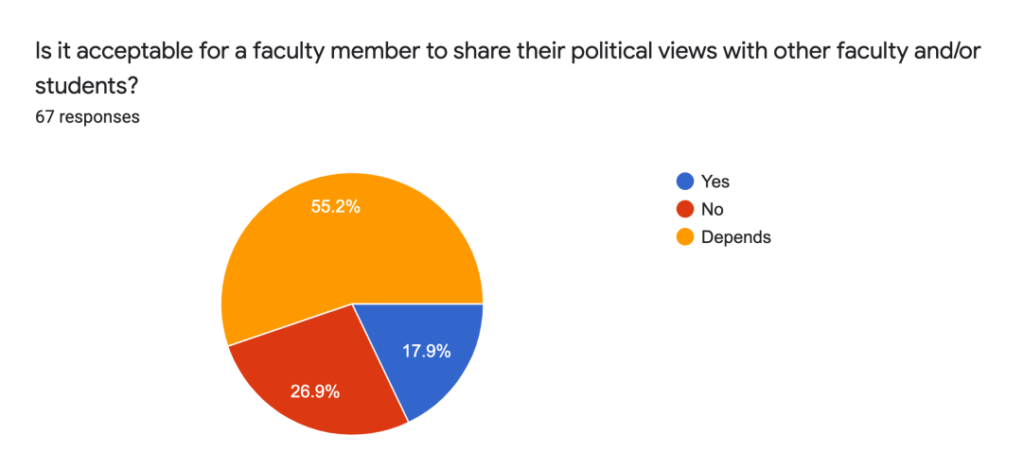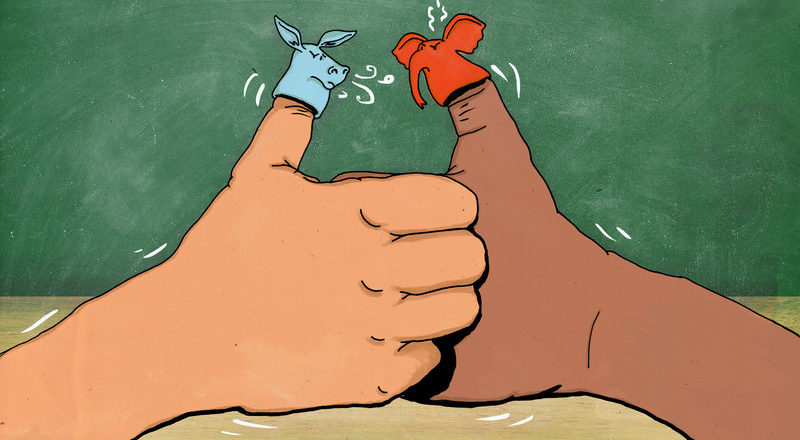As a follow up to our original article, The Edition has compiled some interesting, thought-provoking community responses. Special thanks to everyone who filled out the Google Form!
Is it acceptable to discuss politics in a classroom setting?

- “In a classroom setting, or really any setting with a teacher involved, most students don’t feel comfortable voicing their true opinions. A lot of times, they will instead provide the answer… that’s considered “socially correct”… according to the majority view in the room because they’re afraid of being poorly judged for their real opinion.”
- “Education is the pillar of democracy. Without talking to our students as future voters, we are doing them a disservice as we are democracy.”
- “I think it’s important to have a place where structured and proctored discussion of topics that affect everyone is able to be brought up. A classroom setting can provide a [greater] variety of perspectives than a discussion with predetermined, like minded people might.”
Is it acceptable to discuss politics with friends at lunch?

- “Yes, of course it’s acceptable. What kids discuss with their friends at lunch has nothing to do with school and in large shouldn’t be regulated by teachers. There are few situations in which teachers should get involved with what kids discuss at lunch, for example: hate speech, bullying, etc. However, none of these things have to do with politics itself, therefore it shouldn’t be regulated.”
- “Even though I don’t typically like discussing politics, my friends do….They are respectful and understand that a political opinion isn’t the defining factor of a person or a friendship. If people can be respectful after the political discussion and not let it affect their feelings towards the other person it’s ok.”
Is it acceptable for a faculty member to share their political views with other faculty and/or students?

- “If they’d like to discuss it with other faculty, that’s up to them, they’re all adults. It isn’t really appropriate to bring up their own political opinion in class, however, as it could keep students from really expressing their own political opinions or could make students uncomfortable.”
- “…I actually think if a teacher states their opinion outright people can be aware of their biases and take that into account. There is no such thing as a 100% unbiased person.”
- “Democracy starts in the classroom. Given students are approached by so many outlets, it is neglectful to not have a model of an adult who actively researches political affairs. To be clear, teachers should not dump their thoughts to their students. Students should also teach the teacher.”
- “I think that it’s perfectly fine for faculty to have certain political views. However, in today’s political climate, having a teacher express they have one view while a student has another could lead to uncomfortable feelings in the classroom on both sides…It’s certainly a difficult line to draw.”
The GA community has recently begun focusing on Civil Discourse. What are your thoughts on it? Do you find it beneficial? Why or why not?
- “Yes, I think it’s reasonable for GA students to engage in difficult conversations like these—in college and then later in life they will encounter additional difficult conversations and I think those students who have experience in civil discourse are at an advantage over those who don’t.”
- “I definitely agree with the intentions of GA to try to teach students how to have more respectful conversations… As with all mandated GA educational advisory activities/assemblies, I’m unsure of how much of what we were taught will actually be implemented into students’ practices of political discussions. The allotted times for us to practice what we learned were heavily structured and scripted, so I’m not certain that students will actually be able to effectively apply what they’ve learned in real life situations.”
- “It’s interesting and could be helpful, but the way it’s been executed is more frustrating than beneficial. Certain students in my own advisory tend to become political very quickly, and there were times when they would say inappropriate or incorrect things that no one was allowed to correct, which just made people uncomfortable.”
Do you have any suggestions to help improve our focus on Civil Discourse?
- “You can’t teach kids to engage in open discussion on polarizing issues without letting them actually have those discussions.”
- “I honestly would enjoy having legitimate civil discourse discussions in advisory on REAL topics that matter today, and I’d like those conversations to not have much scripting/advisor guidance. It would offer us all a chance to really apply what we’ve learned in a legitimately productive and interesting conversation.”
Agree? Disagree? Leave your thoughts in the comments below!


This was a really great article! The topic, execution, and writing were all great. Good job Patrick and Olivia.